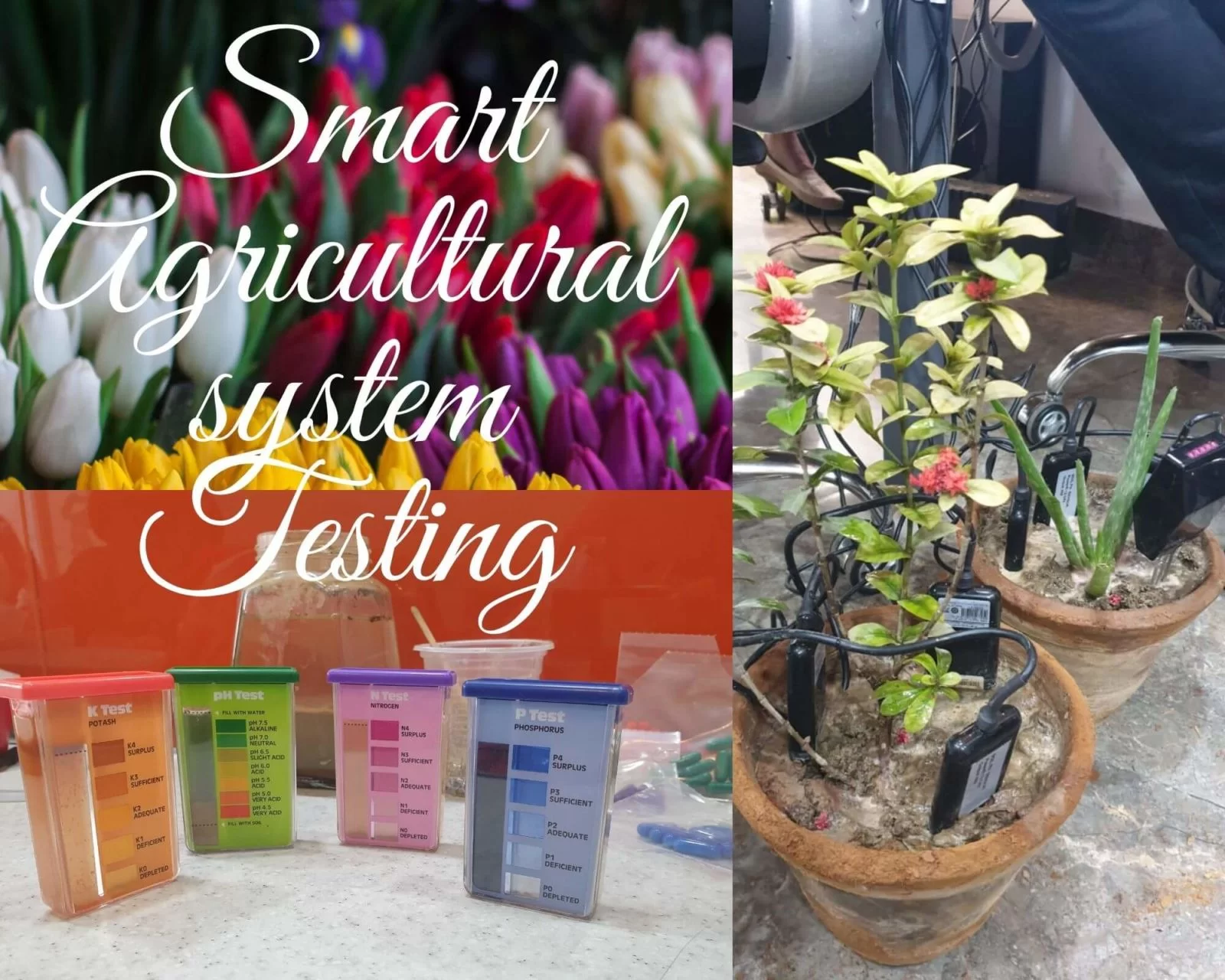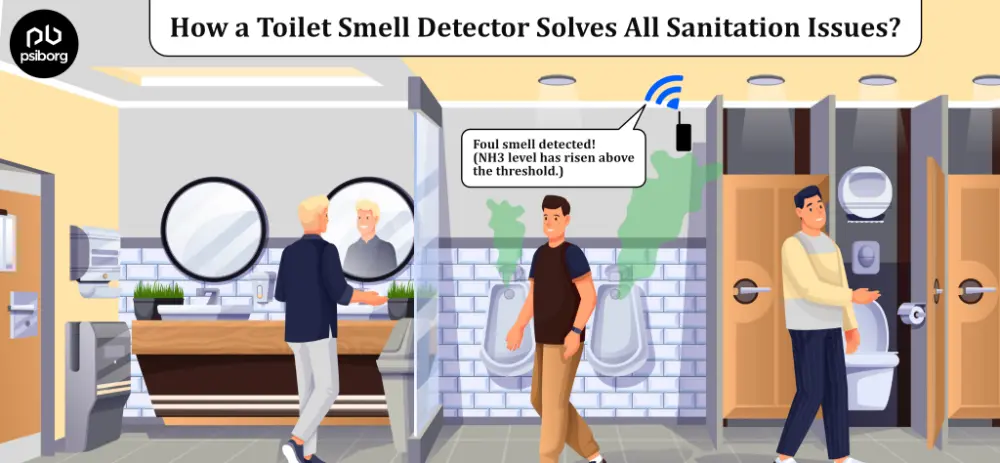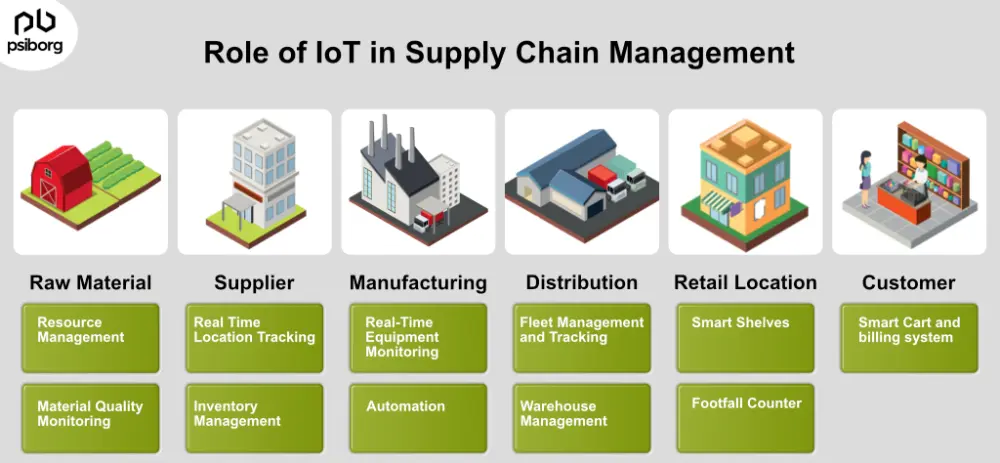From the very start, when humans planted the first grain in the soil started thinking about improving farming. There will always be a new way to make farming more efficient. Moreover, the current trend/demand in agriculture is based on “smart agriculture using IoT.”
One crisis, scarier than the pandemic that we are overlooking right now is food scarcity.
“Food on the planet Earth will be over by 2050!” Yes, in just three decades.
To make things worse, the UN released a report saying the world population is expected to grow by 9.8 billion by 2050.
To feed too many mouths, we need a better crop yield. This is where precision agriculture and the IoT in agriculture can be a game changer.
Don’t want to exaggerate, but the IoT can be a survival aid for humanity and the planet.
Smart agriculture uses IoT systems to ensure high crop yields, increase profit, and protect the environment. Using IoT-based smart agriculture systems, farmers can achieve maximum resource application and a high quality and quantity of crop yield.
Let’s understand more about the application of smart agriculture systems using IoT.
SMART AGRICULTURE USING IOT: A WAY TO SUSTAINABLE AGRICULTURE
Agriculture is one of the largest sources of income in the country and also serves the most critical aspects of providing food. Once, there was a time when lands were naturally fertile, and farmers were able to grow as per their choice. However, the soil fertility of agricultural lands and crop growth get affected after years of farming. Most of the time, the richness and nutrition of the soil decrease by planting the same kind of crop. The issues faced by farmers are unlimited, but the pity is that they are not enlightened correctly to rectify the problems. Therefore, it becomes necessary that we combine agriculture with technology. Here comes the concept of a crop monitoring system using IoT. It not only helps the farmers increase their soil goodness but also contributes to sustainable agriculture.
A smart agriculture system is a concept where agriculture activities become advanced with the Integration of IoT and cloud technologies. Smart IoT farming includes different management ways to manage soil fertility and leverage crop growth. Typically, smart agriculture sensors solve issues related to soil fertility, crop growth, using the right amount of fertilizer, water, and pesticides, and suggesting correct crops based on humidity, minerals, weather, etc. The information can be gathered by simple soil or weather monitors, but complex situations need smart solutions.
THE GLOBAL SMART FARMING MARKET
According to a report by Business Insider, nearly 12 million sensors will be installed in agriculture worldwide by the end of 2023.
The global smart farming market was valued at USD 12.80 billion in 2021 and is expected to reach USD 33.69 billion by the end of 2029, registering a CAGR of 12.86% during the forecast period of 2022–2029.
Livestock monitoring accounts for the largest agriculture-type segment in the niche due to the rise in consciousness regarding the health of animals. Tech giants like IBM estimate that the average farm can generate half a million data points per day, helping farmers improve crop yields.
WHAT CHALLENGES CAN IOT SOLVE IN THE AGRICULTURE INDUSTRY?
Farmers face diverse challenges such as soil pollution, erosion, water scarcity, and much more. But, as I said, humans always think about ways to improve farming. Moreover, the pandemic underlined the need for automation in agriculture to reduce staff involvement.
However, the biggest challenges that the agriculture industry faces and how IoT solutions can help overcome them are:
DRASTIC CLIMATE CHANGE PUSH FARMERS TO ADJUST TO NEW CONDITIONS
Weather conditions always play a crucial role in cultivation. But the not-so-constant weather affects the crop yield, and farmers can barely control climate change.
Dry ground checks crop growth, while wet soil will cause rotting, and a hot climate can lead to plants withering. Even early or late frosts can cause great crop loss.
IoT can help farmers adapt to climate change with the use of more accurate tools for weather forecasting. The IoT technology can process massive amounts of data about crop seasons in a certain region to provide farmers with long-term weather forecasts.
FARMING AS AN OCCUPATION ATTRACTS FEWER YOUNG WORKERS
If you look around, you will find that younger people move to cities in search of new job opportunities, and the older generation is always involved in farming.
This is because, for many, farming seems unattractive as it is low-tech and considered outdated. However, the use of technologies like IoT and autonomous vehicles is becoming more common in agriculture.
FARMERS FACE A HARD CHOICE ON HOW TO SUPPLY A GROWING POPULATION WITH FOOD
People aspire to get food of higher quality. Society today also expects farmers to minimize chemical pesticide usage. To meet people’s demands, farmers have to adjust their farming approaches to make their products eco-friendly and attractive to consumers.
In addition to that, the actively growing population demands that farmers reinvent farming activities to feed more people. This can only be achieved through modern technologies. So IoT applications in agriculture are only a matter of time.
WHAT CAN YOU DO WITH IOT IN AGRICULTURE?
By using IoT sensors to collect machine and environmental data, farmers can make informed decisions and improve almost all farm operations, thus increasing crop yield.
The list of tasks you can optimize with the use of smart agriculture using IoT is:
- Automatic Irrigation
- Manage Livestock with rich data insights
- Weather forecasting
- Sensor-based, smart precision agriculture
- Remote crop yield optimization
- Soil health monitoring
- Remote Asset Monitoring
- Improve the quality of the produce
- Weed control
- Greenhouse monitoring with real-time data
- Pest control
WHAT ARE THE TECHNOLOGIES THAT CAN BE INCLUDED IN SMART AGRICULTURE?
Farming in this century is not only smart but also efficient as compared to the past era. Now farmers are much more knowledgeable and use sensors for agricultural businesses to understand the needs of their soil. Some of the smart farming techniques and technologies include:
SOIL QUALITY SENSORS
Soil Quality sensors are available in a wide range and are a great example of IoT application in agriculture. These sensors are basically used to measure NPK values in the soil. These agricultural sensors also efficiently calculate temperature, water, humidity, light, pH value, salinity, etc.
CLOUD-BASED IOT DASHBOARDS
Cloud-based dashboards are used to connect sensors with mobile applications. All the data collected by the sensors is sent to the cloud and then to mobile or web apps where the collected data can be stored.
IOT-BASED SOIL SENSOR PROBES
IoT-based probes and measuring devices make it easy to insert hardware tools into which the sensors are integrated. These devices are embedded deep in the soil and measure the values of different minerals in the soil. Agricultural crop monitoring system using IoT is also very beneficial for the farmers, as they keep an eye on the crops 24×7 and provide data for better analysis.
SMART COMMUNICATION SYSTEM FOR HUGE AGRICULTURAL FIELDS
As the name suggests, the smart communication system refers to the network and devices that help in signaling data from the soil sensors to the cloud and then to the monitoring devices.
ANALYSIS OF SOIL SENSORS DATA
Data analysis is one of the essential activities of smart agriculture, which includes the analysis of the data which is collected through smart devices, sensors, and probes.
TELEMATICS AND LOCATION TRACKING
Telematics includes positioning technologies and GPS systems which are used to set locations and positions of the probes inside the soil.

HOW CAN WE ACHIEVE SUSTAINABLE AGRICULTURE WITH A SMART AGRICULTURE USING IOT?
Sustainable agriculture is a term used to describe a way of farming that is done sustainably to fulfill the needs of the present and save for future generations. Over the years, soil fertility and nutritional value have decreased, hence affecting crop growth. If we continue using the soil without taking care of it, it will lose its ability to grow crops. Therefore, to save agricultural land for future generations, it is necessary to take good care of the soil.
Smart agriculture sensors help farmers understand every element of the soil and make them aware of the use of fertilizer, pesticides, etc. Also, we can appreciate the crops according to soil quality. Every land has different NPK values, salinity, pH values, water level, etc. These parameters, along with the atmospheric factors responsible for the good or bad growth of the crop. If a farmer gets the knowledge of particular parameters required for a specific crop, they can grow more efficiently, and with various types of agricultural sensors in the field collecting data, the farmers have a chance to make informed decisions about their crops.
SIGNIFICANCE OF SMART AGRICULTURE IN IOT
The population of the world is estimated at around 7.58 billion on world Population day, i.e., July 11, 2020. With the increase in population, the rise in food growth becomes a necessity. Thus, it becomes essential that changes in traditional farming be made. These changes can be adopted in smart agriculture. Mixing the latest IOT technologies with traditional agriculture practices can make farming much more efficient and fulfilling.
The significance of smart agriculture using IoT is uncountable, but a few are listed below:
- Smart agriculture can be beneficial to productive agriculture, as farmers can plant crops that are useful for their soil.
- The use of pesticides and fertilizers can be limited as per the requirements.
- Water waste can be reduced as some crops require less moisture than others.
- The crops can be monitored in real-time.
- The farmer’s time consumed during the field visit to check the crops can be reduced, giving the family time.
- When the efficiency of farming increases, more crops grow, boosting the economy of the country.
- Farmers can pass on good-quality land to their future generations.
- The soil will remain nourished for a long time.
Also Read: SMART IOT SOLUTION
WHY CHOOSE PSIBORG TO DEVELOP IOT SYSTEM IN AGRICULTURE?
We, at PsiBorg, have worked with soil NPK sensors, which were probes, and to verify the results, we did a chemical rapid test with the online kit available. We are the leading IoT Service Provider to monitor the N, P, and K of the soil as well as temperature, humidity, and light intensity to provide the best possible conditions for the crops to grow. Further, all these sensor nodes send soil data from the field, which we use to generate custom reports as per the requirements of the farmer, which enables them to decide the best crop for their soil type and also helps in increasing the yield.
We provide various solutions for smart agriculture system using IoT technology as we have expertise in LPWAN and have already built various solutions in sub-1GHz which is an unlicensed band, and have implemented such networks in many of our successfully deployed projects.
FAQ
Since the sensors used in farming are called agriculture sensors, So, the top 5 agriculture sensors are: optical sensors (to predict soil properties); location-based sensors (to give insights on the cultivable land); mechanical soil sensors (to optimize the tilling method and inflow of water); electrochemical sensors (to monitor the pH level of the soil); and dielectric soil sensors (to measure the moisture level in the soil).
Agricultural activities have a significant impact on climate change, and by using IoT-based smart agricultural solutions, farmers can reduce their overall environmental footprint. Therefore, PsiBorg develops smart agricultural solutions with which farmers can conserve water, reduce waste production, and increase crop yield.
To get started with implementing IoT in your agricultural operations, first identify your needs and partner with experts to improve your farming operations. We at PsiBorg Technologies develop smart agricultural solutions that are designed around the daily problems faced by farmers and offer simple, scalable, and cost-effective solutions. PsiBorg will help you get started with your IoT journey in agriculture.
The future of smart agriculture system using IoT technology involves precision farming techniques where IoT sensors monitor soil conditions, crop health, and weather patterns in real-time. Furthermore, this data-driven approach will help farmers improve crop yield and make informed decisions for sustainable agricultural practices.
Smart agriculture is the concept of providing the agricultural industry with an IoT infrastructure for tracking, automating, monitoring, analyzing operations, improving crop yield, and empowering farmers.
Smart solutions for agriculture include a soil health monitoring system where sensors monitor soil moisture, nutrient levels, and crop health. Besides this, there are also advanced IoT-based fertilizer irrigation systems, drones for crop monitoring, and predictive analytics.






